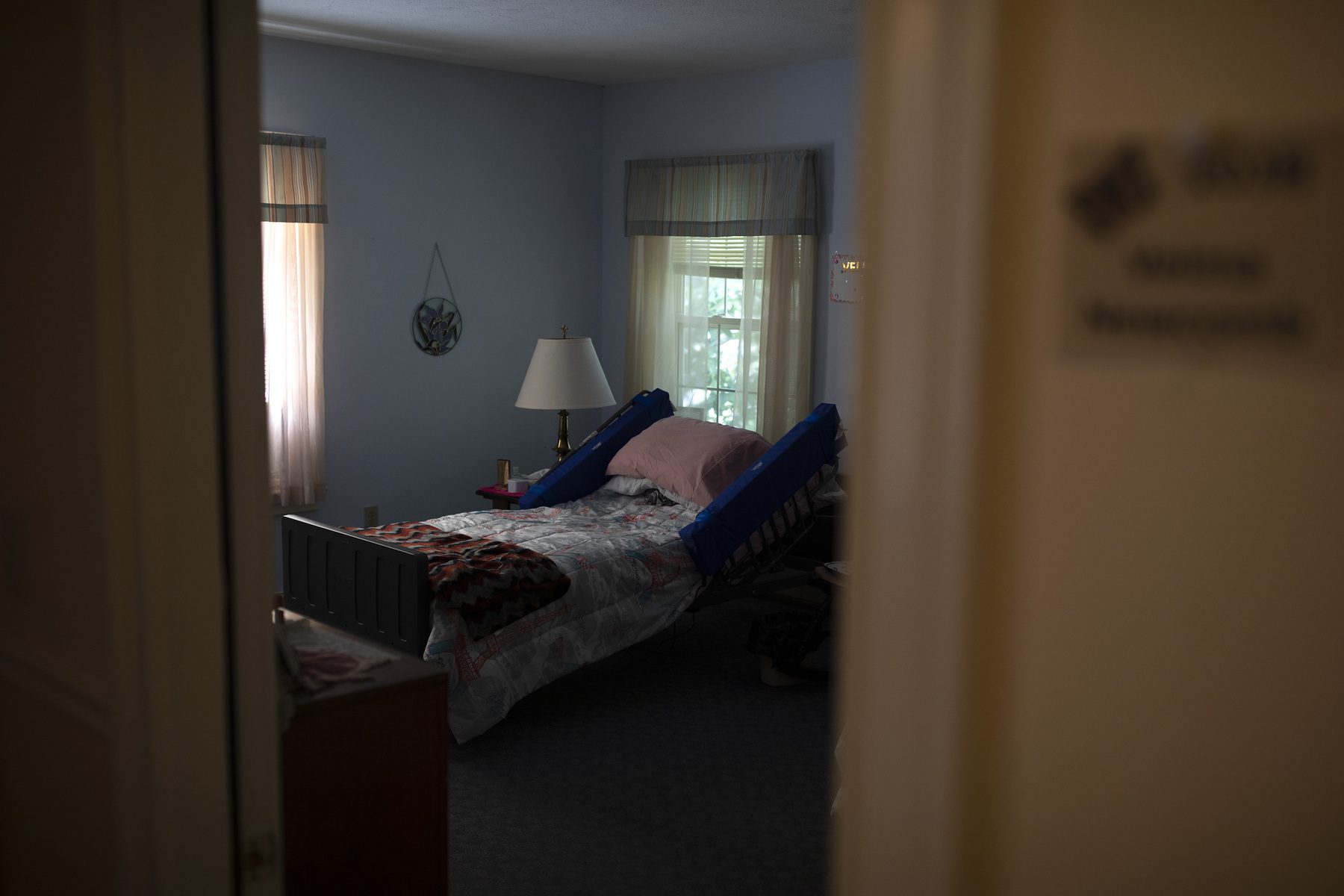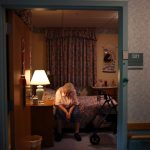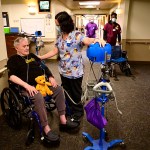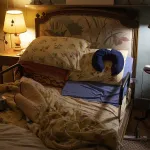Older adults, particularly those living in nursing homes, are bearing the brunt of the current winter COVID wave in the United States, but booster rates among nursing home residents and staff remain low, according to new data from AARP.
Only 47 percent of nursing home residents were fully up-to-date and had received the bivalent COVID booster in the four weeks preceding December 18, according to AARP. Less than a quarter of staff, 22 percent, are fully up-to-date on their COVID vaccinations. This is despite relatively high rates of infection and transmission. Over the same time period, one in 17 nursing home residents tested positive for COVID-19 and at least 1,100 nursing home residents died. In all, 64 percent of nursing homes had at least one resident case. COVID is the third leading cause of death for Americans over 65.
The majority of nursing home workers are women, and aging populations are overwhelmingly women.
Ari Houser is senior methods advisor for AARP’s Public Policy Institute and the lead analyst for AARP’s nursing home dashboard, which tracks COVID cases, deaths and vaccination rates among both residents and staff. He praised the Biden administration’s early push to get nursing home residents vaccinated in 2021, but said that booster efforts have been comparatively lackluster.
“There was not an extraordinary effort to get nursing home residents vaccinated. There was a normal effort. And so, we have normal results,” Houser told The 19th.
Houser also highlighted how uneven vaccination rates in nursing homes are between different states. Arizona has the lowest vaccination rate, with only 26 percent of residents fully up-to-date. In contrast, 95 percent of nursing home residents in Vermont and Rhode Island are boosted and up-to-date.
While political attitudes towards vaccination have certainly had an impact, Houser pointed out that nursing homes and states that have historically had lower rates of flu vaccinations appear to be the same states struggling to get COVID boosters into arms.
“It’s an issue that’s not new to COVID or unique to COVID. The reason the vaccination rate for the initial vaccine was so high was because an unprecedented effort was made to get them that high,” Houser said.
Sheria Robinson-Lane is a gerontologist and assistant professor at the University of Michigan’s School of Nursing. She stressed the need to get nursing home residents vaccinated because even mild COVID-19 infections can be catastrophic for older adults.
“For vulnerable populations like older adults and individuals with chronic illness, individuals who are in nursing homes, the flu vaccine and the COVID vaccine are really important,” Robinson-Lane told The 19th.
She expressed concern about the lack of information available about boosters.
“You don’t really hear about it as much on the radio. You don’t even hear about COVID deaths the way we used to. There’s a disconnect between what’s happening. Maybe even some fatigue,” she said.
Michigan resident Janice Will, 71, caught COVID while undergoing rehabilitation in a nursing home. Will has Parkinson’s disease, a neurodegenerative condition that causes tremors and loss of muscle control.
In September, she had an extended stay in the hospital for low sodium. During that time, she lost the ability to walk and to sit up in bed on her own. She was supposed to spend time in the nursing facility to work on getting that functioning back.
Instead, two weeks into her stay, Will caught COVID. Physical, occupational and speech therapy all but stopped. She received some services in bed, and her son, Brandon Will, tried to do some exercises with her. But months later, she still has not regained the ability to walk. It is unclear if she ever will, according to her son.
“Before [she contracted COVID] she was walking up and down the hallway and she was using the exercise bike. But now all of that progress is gone. We’re still struggling to regain that baseline, or to figure out what the new baseline is,” Brandon Will said.
Although her case of COVID was not “severe” — Janice Will did not go back to the hospital — it was a terrifying experience.
It’s impossible to know how exactly she contracted COVID, but both she and her son expressed frustration that her roommate’s daughter and grandchildren would come to visit unmasked. Her roommate also contracted COVID and also had to be isolated. There were no masking requirements for guests at the time Will became infected. Safety precautions were also largely reliant on self-reporting.
“When I checked [the facility] out there were precautions they were taking. But then actually in practice, they weren’t. They weren’t checking anybody’s vaccination status. Not the visitors. Visitors didn’t have to wear masks. There were just these little screening forms that asked if you’ve had a fever or cough in the last 14 days. It’s an honor system,” Brandon Will said.
Janice Will described her experience with COVID isolation as haphazard at best. The only visitor she had regularly was her son. In order to see her, he had to put on full PPE – not only a face mask but also gloves, a face shield, shoe covers and a gown.
“People only came to check on me at mealtime or when I needed to use the bathroom. It was very lonesome,” she said.
What the Wills went through is not unique. Last month, AARP submitted a letter to the Centers for Medicare and Medicaid Services asking the department to step up vaccination efforts and to enforce existing requirements. The letter outlines several failures, including that some nursing homes were reporting zero boosters had been administered.
“We’ve totally abandoned the pretense of trying to [protect people] in this country. It’s like we’ve been left to fend for ourselves,” Brandon Will said.







